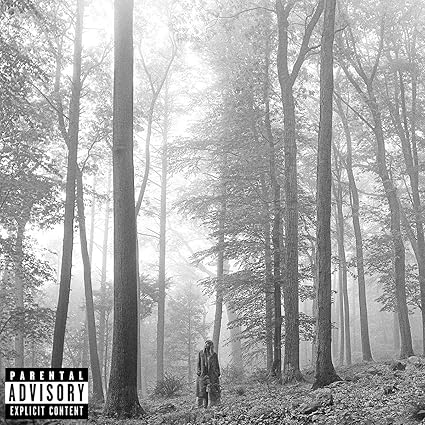Like many of the glowing reviews I've read, I agree this is not a bad album; the production and arrangements keep interest, like the subtle, string-like effects on "Cardigan." The songwriting is often complex: verses made of up many chained subphrases that build over time, like in "Mad Woman" and "Epiphany," and return sometimes unpredictably; in the layered duet in the last half of "Exile" with Bon Iver, the melodies accentuates important words; "Mirrorball" has a verse and chorus that both sound like choruses. There is some great lyric writing ("My Tears Ricochet" about her split with her label, Big Machine records) and nice turns of phrase (like "I was so ahead of the curve, the curve became a sphere" in "This is Me Trying.")
On the other hand, after listening a few times, I am not sure that any of these songs are going to jump back into my head like many of Swift's other songs (I just had a "Cruel Summer" from 2019's Lover stuck in my head this week). At 16 tracks, this is a long album, and some of the songs seem a little longer than they need to be, maybe a little more contemplative than I prefer.
Songwriting staples, connecting but more blandly than necessary
While Swift is still using “devils roll the dice” motif that plagued Lover and Reputation, at least the motif is not used quite as prominently or often. The most obvious use is in "Peace," where it was employed almost exactly as in previous Swift songs. The motif occurs repeatedly in the chorus of "Cardigan," mostly in its downward form. It is also in the pre-chorus of "Mad Woman."
But Swift has a new songwriting strategy that would, again, be fine if she used sparingly, but instead she uses it over and over on Folklore. Her chained subphrase strategy of writing (mentioned earlier) often puts these long phrase structures over the same repeated chord patterns, sometimes even into the chorus—this leads to choruses that don't arrive as forcefully, and songs seeming longer and less varied than they might be. Songs on Folklore that fit this pattern: "The 1," "Cardigan," "Mirrorball," "Seven," "August," "Peace," and "Hoax"—that's almost half the album using this songwriting strategy. The production tries to obscure the laziness of the chord changes, and mostly succeeds, but I am left with tracks with too much sameness. Even "Mad Woman" and "Epiphany," though they vary up the chords with the subphrase chains, end up with very little contrast.
The bright spots
I think three songs rise above the crowd in Folklore:
- "The Last Great American Dynasty" is a great story song with a conventional song structure—but the story pulls us along, as we wonder if something horrible is going to happen to the described woman. But at the end, instead of condemning her, Taylor connects herself to the supposed misbehavior, critiquing those who think women (especially rich women) should behave a certain way ("Mad Woman" is another explicitly feminist song, with a similar "pot calling the kettle black" message).
- "Invisible String" almost falls into the chained-subphrases-over-the-same chord trap, but Swift varies up the chord changes in the middle of the verse megaphrase, and throws in a nice contrasting bridge (I think we could have an argument about whether there is a chorus at all; the catchy melisma, perhaps the best candidate for a chorus, seems to use the same chords as the beginning of the verse). The plucked string texture that pervades the song is lovely. And to add a bit more interest, the chord pattern changes over the last return of the melisma, reminiscent of the chords used in the bridge, taking us out of the song à la "Every Little Thing She Does is Magic" (the “devils roll the dice” motif also occurs in "Invisible String," but only briefly and in the middle of a phrase; somewhat disguised, at least).
- The production and songwriting of "Betty" reminds me of Fearless, which I'm sure is intentional, since Swift is telling a high-school story similar to the songs on that album. It's pretty amazing she can recall that style. I wonder what would happen if Swift next tried to write a whole album pretending to be her teenage songwriter self? Not that I think she should, if she didn't want to.
What did you think of Folklore?


No comments:
Post a Comment